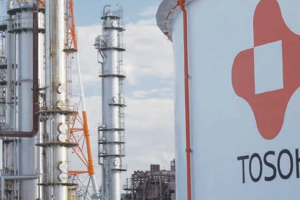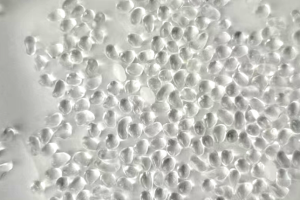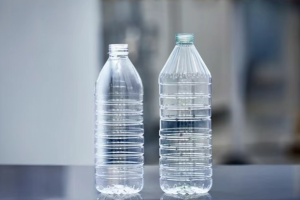February 28, 2025 – Future Bio Emerges with Revolutionary Bio-Manufactured Plastic
Future Bio, a company founded by veterans of Jay Keasling’s lab, a pioneer in international synthetic biology, has unveiled a groundbreaking new plastic called Biomass Vitrimer with a recycling rate of up to 95%. According to Wang Zilong, co-founder and CEO of Future Bio, this “plastic of the future” can rapidly depolymerize in a hydrochloric acid environment, and the resulting products can be recycled and reused, paving a new path for sustainable development in the plastics industry.
Recently, Future Bio announced the completion of millions of dollars in angel round funding, led by Yaotu Capital, with multiple renowned investment institutions following suit. Yuewei Capital served as the exclusive financial advisor. The funds raised will primarily be used for team building, pilot testing, and establishing an AI R&D strategic partnership with XtalPi to jointly drive the upgrade of materials and processes.

Sources familiar with the matter reveal that Future Bio’s core team hails from Jay Keasling’s lab at the University of California, Berkeley, where they excel in protein engineering and strain modification technologies. The company has also enlisted Howard Chou, former director and technical lead at Cathay Biotech, as its fermentation production advisor, providing robust support for the company’s technology R&D and industrialization.
Plastic recycling and reuse have long been a focal point of industry attention. Both traditional petroleum-based and bio-based plastics consume vast amounts of raw materials. Moreover, the production of bio-based plastics often relies on food conversion, posing challenges to food and energy security. Therefore, efficient, low-cost, and widespread plastic recycling is urgently needed.
Future Bio’s Biomass Vitrimer, developed using a “three-dimensional extensible polymerization” technique, boasts high mechanical strength and versatility across various applications. To bio-manufacture Vitrimer, the company has developed a composite protease, polyketide synthase, which acts like a smart manufacturing workshop for new energy vehicles, efficiently producing high-purity cyclic lactones.
Even more exciting is the exceptional recyclability of Future Bio’s Biomass Vitrimer. When exposed to a hydrochloric acid environment, the plastic quickly dissolves into small molecules, which can be easily separated and recycled through physical methods. This feature significantly reduces the cost of plastic recycling, providing an economic incentive for plastic reuse.
Currently, Future Bio is actively exploring commercial application scenarios and collaborating with leading brands in packaging, automotive, printing, and home furnishing industries. For instance, in the automotive manufacturing sector, the use of high-performance recyclable plastics can simplify the recycling process of components. In the printing industry, the new recyclable plastic is expected to replace traditional plastics, enhancing resource utilization.
Furthermore, with the support of the AI platform at the University of California, Berkeley, Future Bio has achieved a technological breakthrough in freely fine-tuning the molecular structure of Biomass Vitrimer and predicting corresponding material properties. This technology enables Future Bio to tailor the plastic’s dissolution temperature and other properties according to customer needs, catering to a wider range of applications.
As market demand for high-recycling-rate bio-manufactured plastics continues to grow, Future Bio remains committed to increasing production volumes, reducing costs, and contributing to the green development of the plastics industry.














